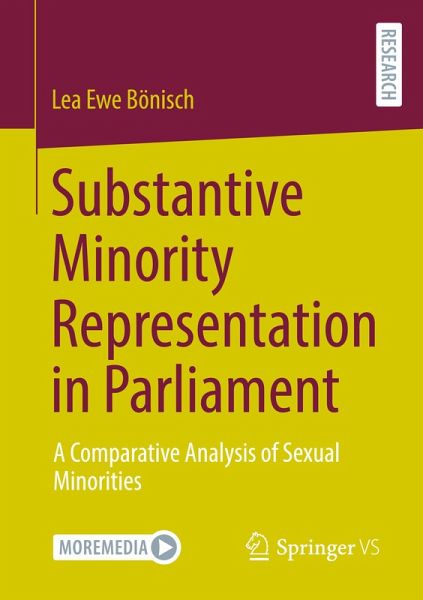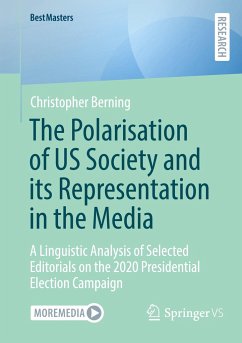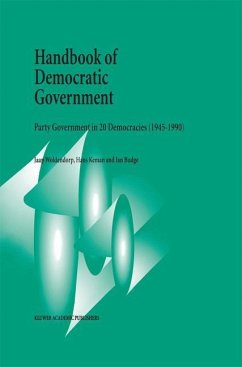
Substantive Minority Representation in Parliament
A Comparative Analysis of Sexual Minorities

PAYBACK Punkte
42 °P sammeln!
This book explores why members of parliament (MPs) substantively represent minorities with invisible characteristics-those lacking outwardly recognizable features. This invisibility complicates the representational relationship, as minority members often do not publicly self-identify, leaving MPs unaware of their electorate's composition and citizens uninformed about MPs' affiliations. Studies on those minorities yield mixed results on the importance of minority membership for MPs' legislative behaviour. Analysing sexual minorities' representation, this work attempts to provide a clearer pictu...
This book explores why members of parliament (MPs) substantively represent minorities with invisible characteristics-those lacking outwardly recognizable features. This invisibility complicates the representational relationship, as minority members often do not publicly self-identify, leaving MPs unaware of their electorate's composition and citizens uninformed about MPs' affiliations. Studies on those minorities yield mixed results on the importance of minority membership for MPs' legislative behaviour. Analysing sexual minorities' representation, this work attempts to provide a clearer picture. Moreover, it looks at political values and awareness as additional explanatory factors.
Both parts, a quantitative analysis of parliamentary questions and a comparative case study of legislative processes regarding same-sex marriage, reveal that minority membership significantly affects individual and macro-level substantive representation, with political values and awareness being at play, too.
Overall, this book adds conceptual, theoretical, and empirical insights to research on representation, legislative studies, and comparative politics in general. Thereby, this study provides important clues on how the integration of minority interests in liberal democracies can succeed.
Both parts, a quantitative analysis of parliamentary questions and a comparative case study of legislative processes regarding same-sex marriage, reveal that minority membership significantly affects individual and macro-level substantive representation, with political values and awareness being at play, too.
Overall, this book adds conceptual, theoretical, and empirical insights to research on representation, legislative studies, and comparative politics in general. Thereby, this study provides important clues on how the integration of minority interests in liberal democracies can succeed.












